Electric car charging points are popping up across the country. In February 2023, there were 38,982 EV charging stations across the UK according to Zap Map – a number that has grown every year since 2016.
If you’re thinking about investing in an electric vehicle for personal use, as company cars for your employees or for your fleet of vehicles, we can help. We’ve answered some of the most common questions about this charging technology. If you’d like to invest in residential charging stations or commercial EV charging stations, find out more about our manufacturing services and get in touch for a quote.
Let’s jump straight in:
What is an EV charger?
An EV charger is a piece of equipment that supplies power for electric vehicles. Its main job is to recharge the battery of an EV to keep the vehicle in motion.
Just as a conventional vehicle needs petrol or diesel to operate, all-electric vehicles and plug-in hybrid electric vehicles need a charged battery to run.
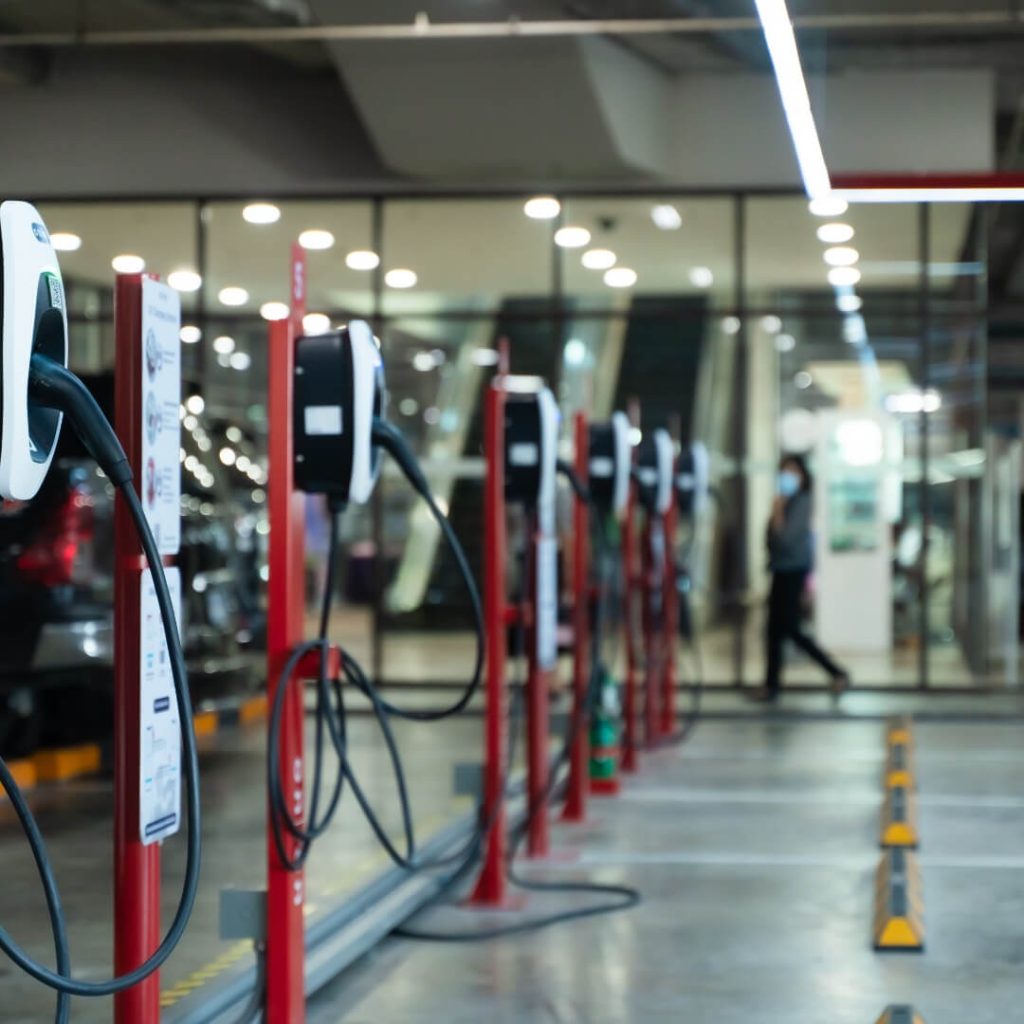
Do electric cars charge with AC or DC?
Like petrol and diesel, there are also two kinds of electrical “fuels”: alternating current (AC) and direct current (DC) power.
The power that comes from the standard grid is always AC. However, batteries – including those in Electric Vehicles – can only store power as DC. This is why most rechargeable electronic devices, including smartphones, have a converter built into the plug which converts AC power to DC during the charging process.
In electric vehicles, the converter – called the “onboard charger” – is built inside the car and converts power from AC to DC, which is then fed into the EV’s battery.
What is the fastest EV charging station?
DC charging stations are capable of charging from 20% to 80% of charge in approximately 40 minutes – making them incredibly quick charging.
DC fast chargers are most commonly used by businesses to power their own vehicle fleets. Unlike AC chargers, a DC charger has the converter inside the charger itself, meaning that it can feed power directly to the car’s battery without needing the onboard charger to convert it.
DC charging is more common near motorways or at public charging stations. However, it may make inroads into home charging, offering new possibilities for EV drivers.
Do EV chargers use a lot of electricity?
A home charging station boasts more than 95% conversion efficiency, which significantly lowers the total cost of running a battery-powered vehicle.
According to the RAC, the running costs of an electric vehicle are:
- Approximately £6 for full home charging,
- Around £6-10 to charge to 80% capacity using a public charging point with rapid charging.
However, it’s important to bear in mind that these are approximations only.
Do all EV chargers fit all cars?
Unfortunately, no. When investing in a new charging station, you’ll need to know whether you need a Type 1 or Type 2 charger.
What is the difference between Type 1 and Type 2 EV chargers?
Type 1 electric vehicle charging stations are designed for American vehicles, whereas Type 2 are designed for European and Asian vehicles.
The main difference is the shape of the plug, with Type 2 electric car chargers having a triple-phase plug and Type 1 electric car chargers having a single-phase plug.
Do I need permission to install an electric car charger?
If you want to invest in EV chargers, you will need building regulations approval. A ‘competent person’ will need to sign off the work and the relevant building authority notified. There is more information available on the Planning Portal website.
Frequently asked questions about residential charging stations
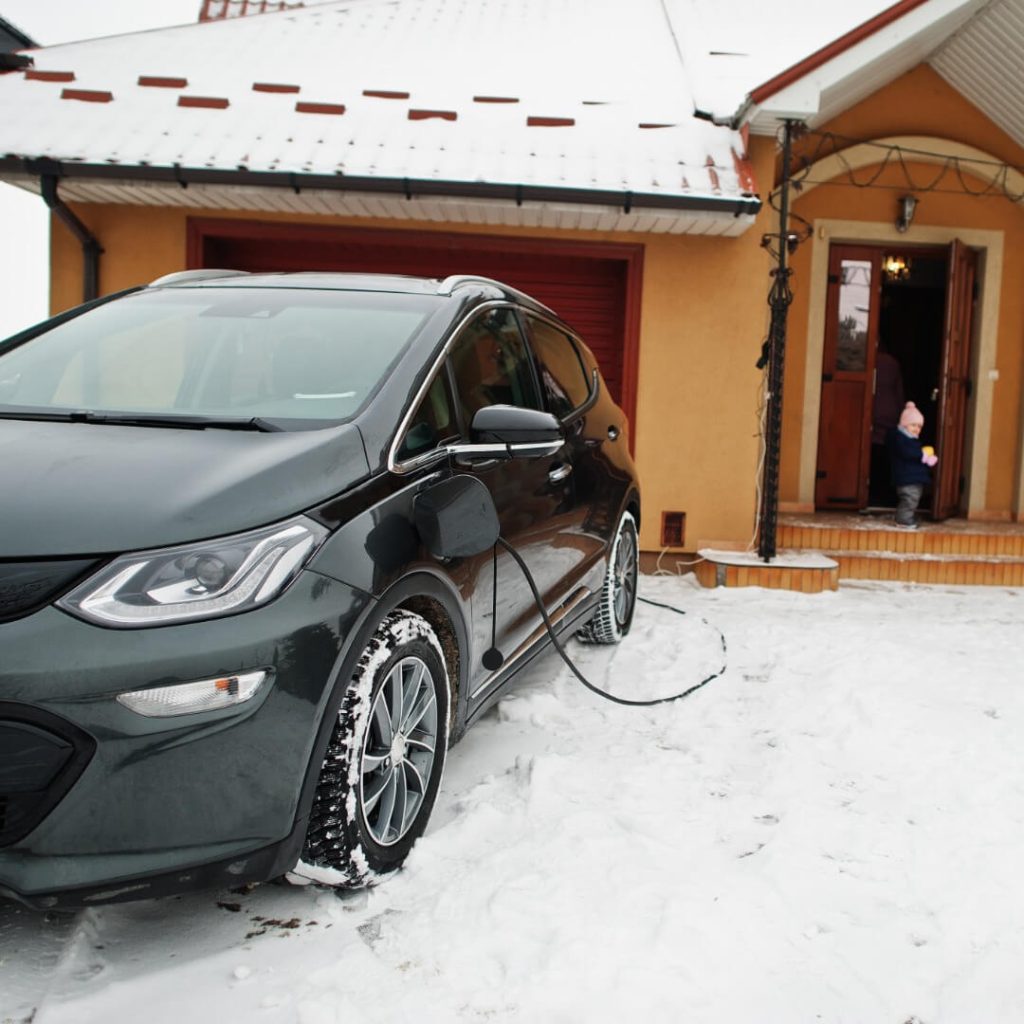
Below are answers to commonly asked questions about installing a charging station at your home. The section following this discusses installing equipment for charging an electric vehicle at your business premises.
What charging types are available for home charging?
There are several home charging methods, depending on how much time is available and how far you need to travel:
Level 1 charger for electric vehicles
The first charging option – Level 1 – is the simplest option and uses 120 volts of electricity. At its most basic, this uses a power cable connected by an EV charger to a standard household outlet. In other words, you use it just as you would any other chargeable electronic device.
This system is convenient and does not require an initial installation cost. It can deliver 13 to 16 km of range per hour of charging, resulting in approx. 65 km of range in 5 hours (overnight), or 200 km in 14 hours.
Level 1 chargers are inexpensive, readily available, and can be carried with the EV. However, most vehicle manufacturers limit the current drawn from a standard domestic 3-pin socket to 10A or less, equalling a maximum of 2.3kW.
Level 2 charger for electric vehicles
The second home charging system – Level 2 – uses 240 volts and needs the installation of electric vehicle supply equipment (EVSE), also known as an EV charging station, to handle higher voltage power.
This is in the form of a wall box, a dedicated EV home charging station, typically delivering around 7kW of power. This is approximately three times as much power and is around three times faster than using a domestic socket.
In practical terms, this system can fully charge a 40kWh battery in around 6 hours or overnight. Of course, such a system needs to be fitted by a trained electrician but it is ideal if you have a garage or driveway in which it can be installed.
Are home EV charging solutions safe?
Home chargers have an enviable safety record, incorporating many features to protect both people and vehicles. They are compact and lightweight, with AC input cables and DC output cables attached. They also provide the flexibility to be used either as portable chargers or to be wall-mounted.
Frequently asked questions about public charging stations
Below are answers to regularly asked questions regarding EV charging stations at public and business premises:
What charging types are available for public EV charging stations?
Public charging stations are becoming more and more popular thanks to the ever-growing network mentioned above. These use AC Type 2 chargers, making them suitable for:
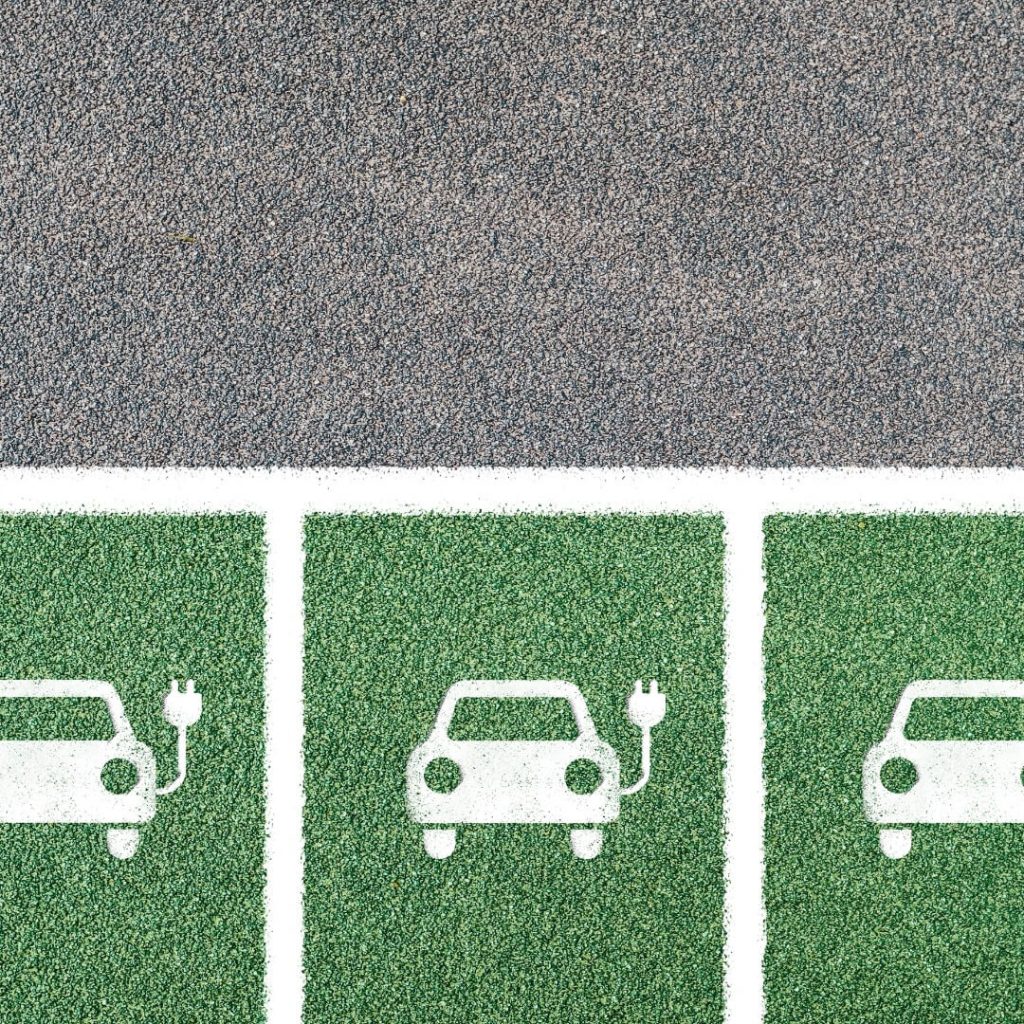
- Workplaces,
- Businesses,
- Shopping centres,
- Hotels, and
- Public commercial charging venues such as conventional petrol and diesel stations.
EV charging stations installed in public places or business premises are simple to operate and can charge all Type 2 compatible vehicles. Public AC charging with a wall box can be 3 to 10 times faster than Household AC Charging.
At JC Metalworks, we regularly manufacture charging stations for commercial use. If you’re thinking about installing electric vehicle charging stations at your business premises, get in touch to see how we can help.
What is Bidirectional Charging?
There are many reasons why someone purchasing a vehicle may choose an electric model. They offer benefits for the environment, are cheaper to run and feature the latest in technology, making them an appealing option. Even though EVs are now common on our roads there are still new and exciting technologies being released all the time – and one of the latest is bidirectional charging.
Read more https://www.geogreenpower.com/blog/what-is-bidirectional-charging/
What are the benefits of installing electric vehicle chargers at your business premises?
EV Charging Stations located at workplaces help to make electric or hybrid vehicles a viable choice for members of the workforce who live further away and can also attract more customers.
The Government’s Workplace Charging Scheme (WCS) has been established to encourage workplaces to set up charging stations compatible with an electric car or other electric vehicles, both to help employees and assist companies to achieve their environmental goals. We’ve written more about why businesses should invest in EV charging on their premises. You can find the article here.
Looking to invest in electric car charging stations?
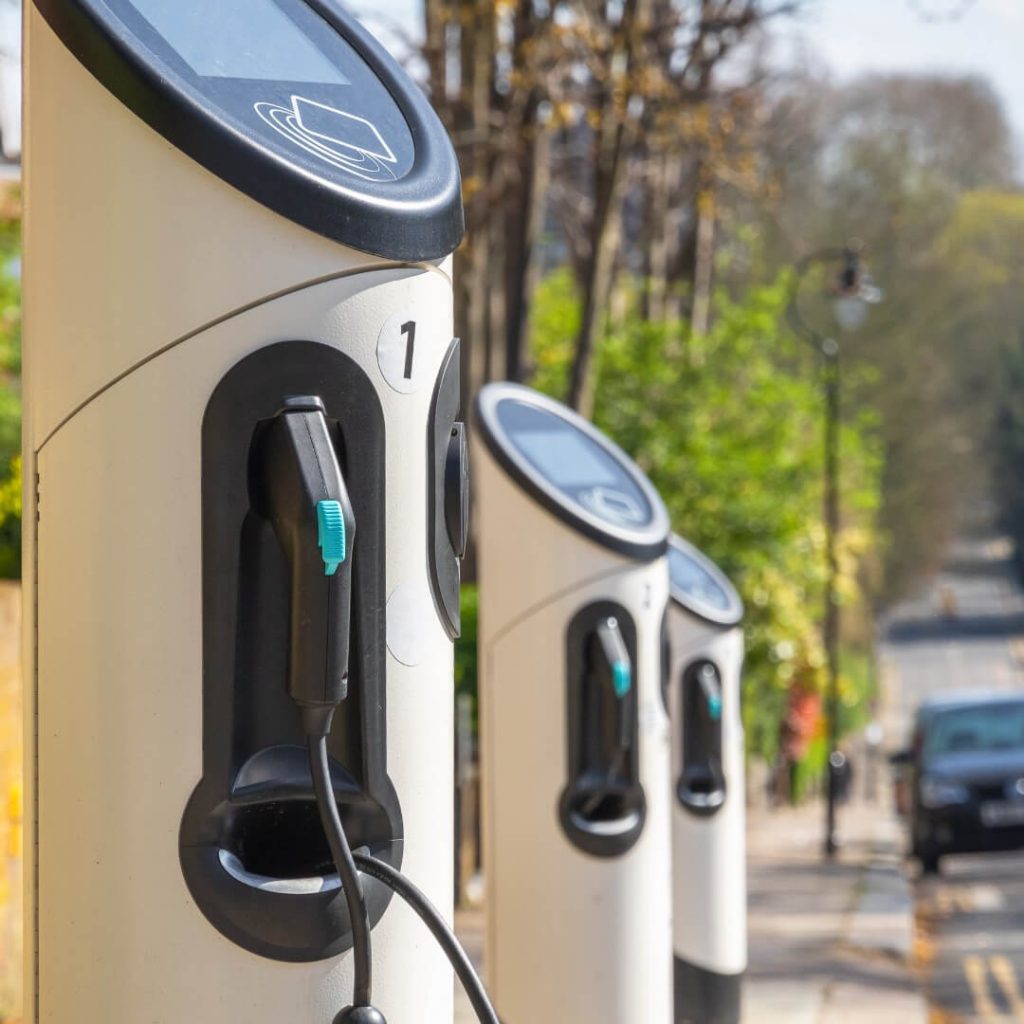
If you’re contemplating investing in an electric vehicle and charging station at home, or some of your employees are EV drivers and you want to support them by installing stations at your workplace, we can help.
We make use of 30 years of experience and our extensive manufacturing facility to build charging stations. We can provide a one-off service to homeowners to complete and phased orders for businesses.
Take a look at our bespoke EV charging station service or get in touch for help and advice from our knowledgeable team.


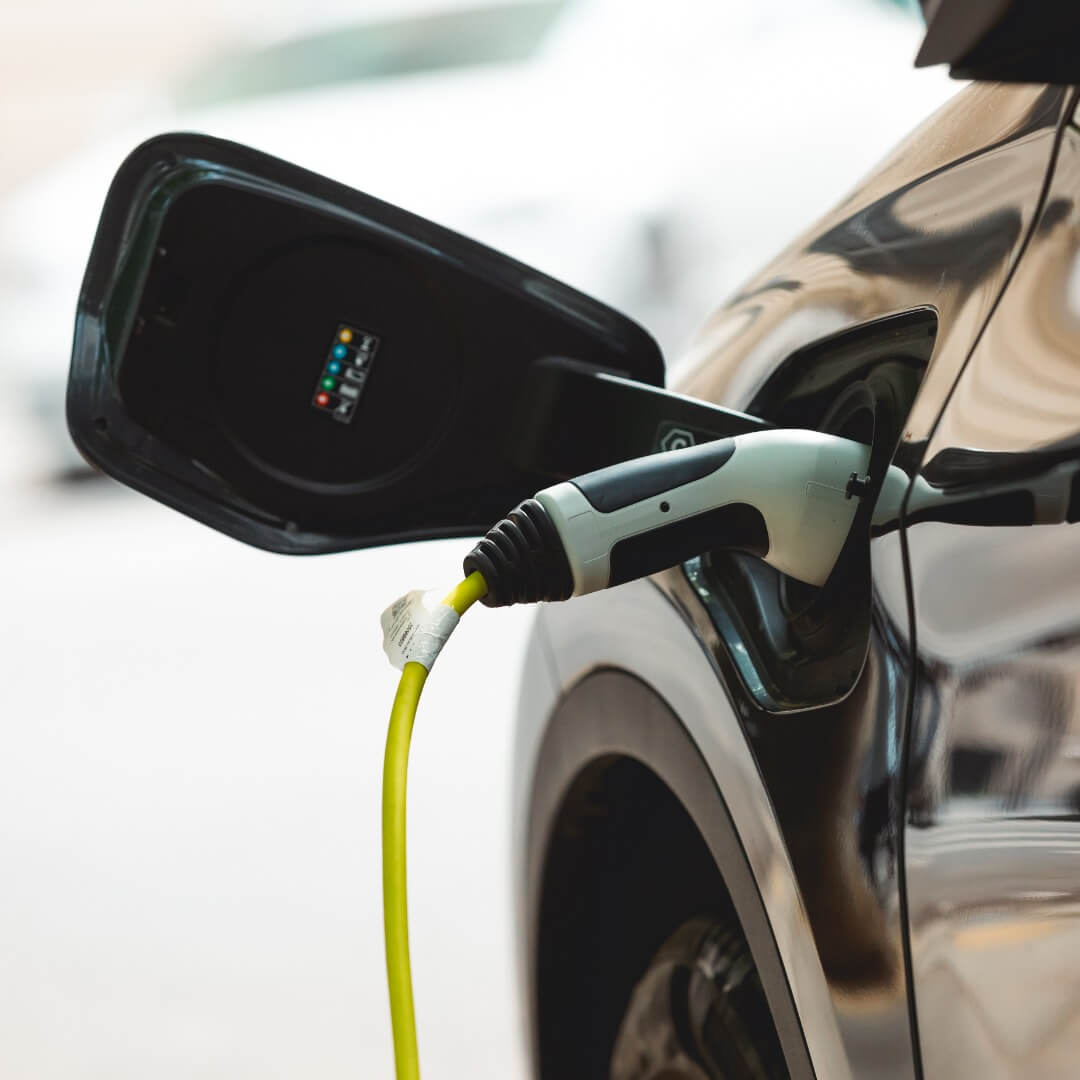
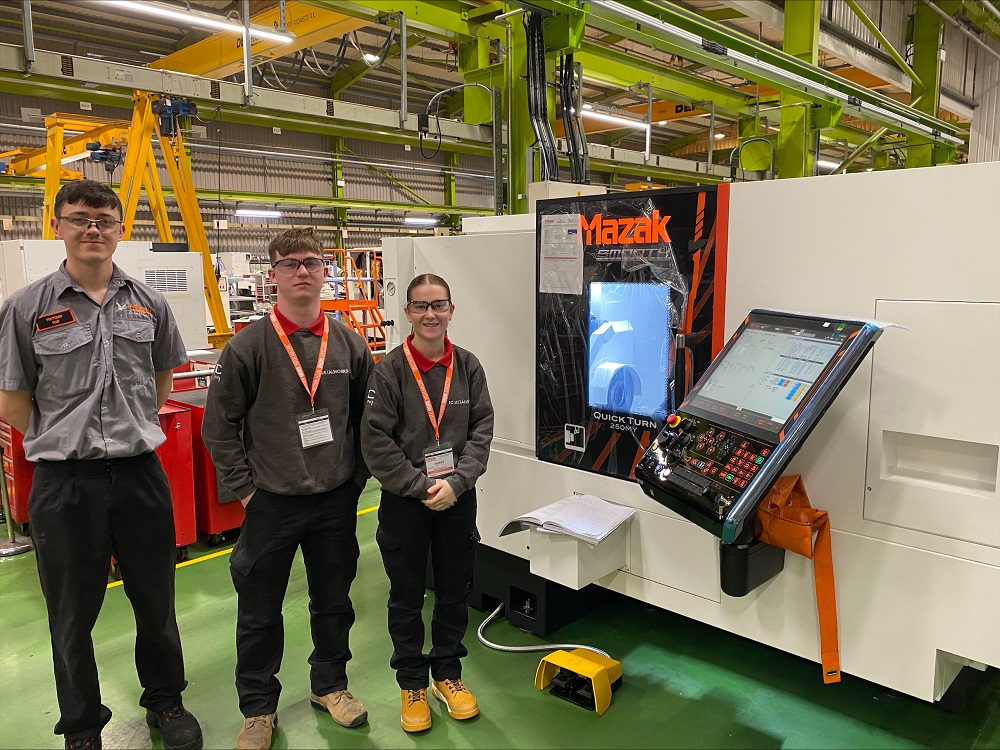

Leave a Reply